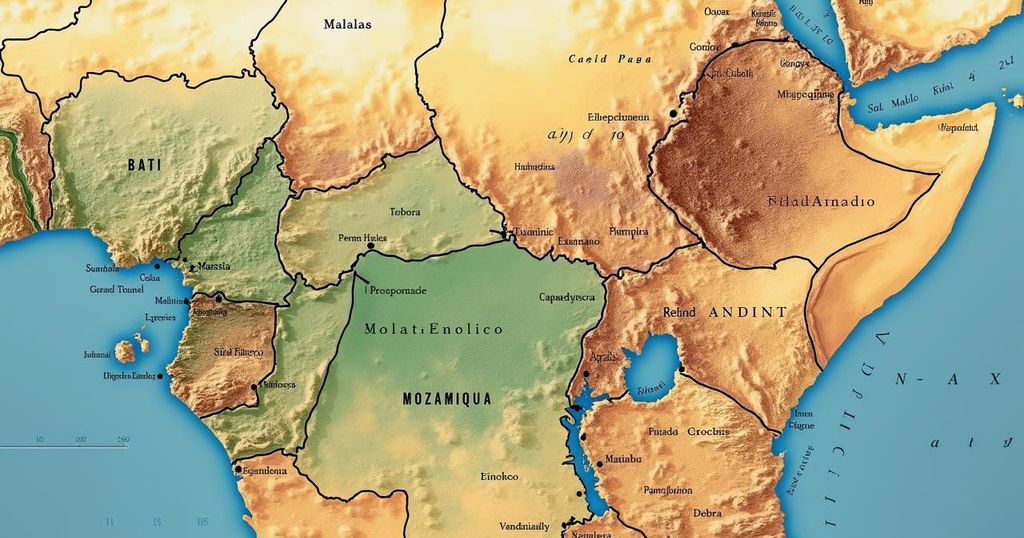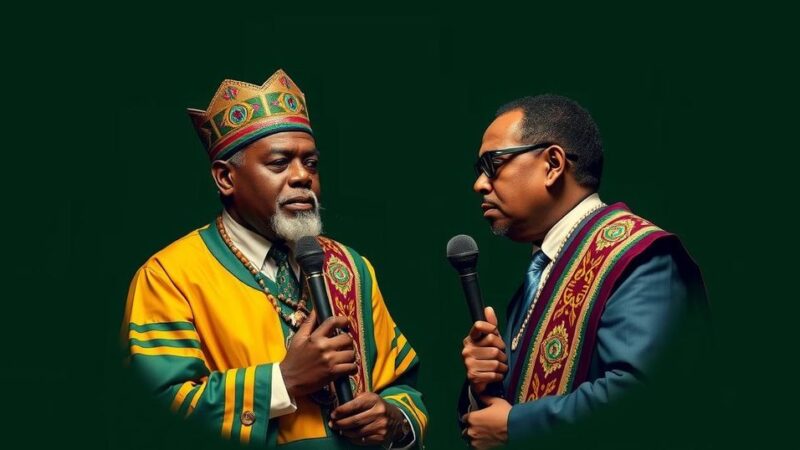Mozambique’s historical narrative is characterized by its colonial past, the struggle for independence led by Frelimo, and subsequent challenges in governance. Following the New State regime’s exploitation, liberation efforts during the 1960s culminated in independence in 1975. Frelimo’s governance faced economic and military challenges, primarily from Renamo, leading to a peace agreement in 1992, establishing political pluralism in the country.
The history of Mozambique is profoundly shaped by its experience under colonialism, the struggle for independence, and the subsequent establishment of a revolutionary government. Following a coup in Portugal in 1926, a regime known as the “New State” (Estado Novo) was instituted, characterized by centralized control that primarily benefitted Portuguese settlers and aggravated existing inequalities in Mozambique. The New State reinforced economic exploitation, promoting capital accumulation that favored a small elite while suppressing the African populace’s mobility and rights. In the 1950s, as Portuguese development plans sought to modernize Mozambique’s infrastructure, they inadvertently fueled discontent among Africans, who were marginalized from economic opportunities. By late 1950s, African discontent coalesced into organized leadership, heralding the formation of the Mozambique Liberation Front (Frelimo) in 1962, which initiated an armed struggle against colonial rule in 1964. Despite brutal military responses from Portugal, Frelimo gained traction and, following Portugal’s internal upheaval in 1974, secured independence on June 25, 1975, establishing a one-party state under Samora Machel. Post-independence, Frelimo’s governance was marked by solidarity with other liberation movements, leading to significant losses from conflicts with neighboring regimes and internal resistance opposition, notably the Mozambique National Resistance (Renamo). The first decade of independence saw mixed results in social and economic policies as Frelimo initially failed in rural agricultural reforms. Economic sabotage by Renamo exacerbated struggles, but negotiations culminated in a fragile peace accord in 1992, reintroducing political pluralism to the nation.
The historical context of Mozambique is rooted in the impacts of Portuguese colonialism, which instituted systems of exploitation that favored colonial settlers. The imposition of the New State regime in 1926 intensified these dynamics, resulting in profound socioeconomic disparities. As awareness and discontent fostered African nationalistic sentiments by the late 1950s, movements like Frelimo emerged, advocating for independence through armed resistance. The eventual overthrow of Portugal’s authoritarian government in 1974 served as a pivotal moment that facilitated Mozambique’s transition to independence, yet ensuing conflicts and governance challenges defined its post-colonial trajectory.
In conclusion, Mozambique’s journey from colonialism to independence and revolutionary governance illustrates the complexities of navigating post-colonial nation-building. The evolution from the centralization of power under the New State to the eventual establishment of a one-party state highlights the formidable challenges faced by Frelimo in addressing societal disparities while combating internal and external threats. The subsequent peace agreements and reforms reflect ongoing efforts to reconcile past grievances and foster stability in the nation.
Original Source: www.britannica.com






